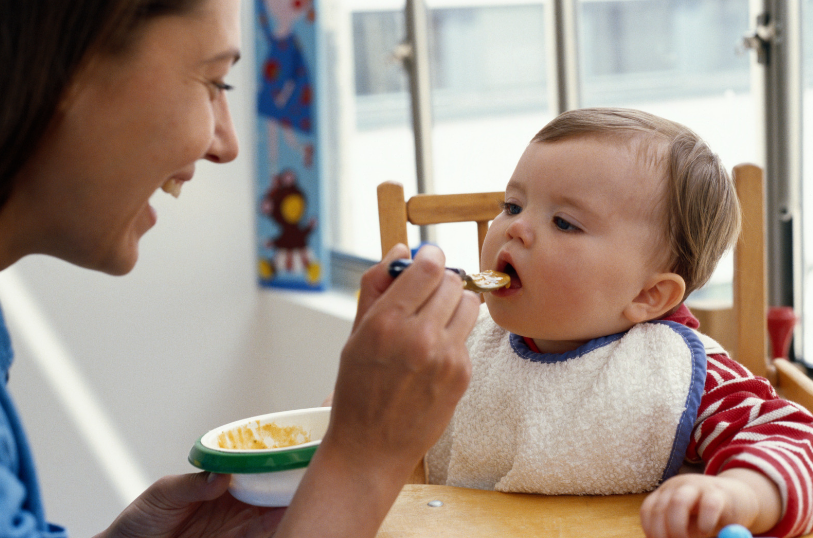How Do I Know if My Baby is Ready for Spoon Feeding and Solids?
While many pediatricians have guidelines for when to start spoon feeding, the most important thing to consider is your own child’s readiness. The following items are excellent indicators that your child is prepared to sit in the highchair and happily engage with food:
-
Your child can sit independently and hold his/her head upright steadily to fully activate and coordinate the muscles of the mouth, neck, and eyes.
Stabilization of the head provides muscles of the mouth and neck the “steady ground” that they need to fully integrate without additional effort or strain during feeding. Sitting upright is important, but your child should also rotate slightly to both sides without toppling over, sinking into one side of the chair, or slumping forward; the tray should not be the only thing holding them up!
In an upright position, your child will also be able to use his or her eyes to track food, objects, and people involved in meals and remain visually attentive to events that occur throughout mealtime. Children learn a lot about food by observing caregiver reactions and response to food! Keep in mind, it is important for the caregiver administering the food to remain at eye level. By doing so, your child will not have to extend their neck backward or forward to achieve food from the spoon, which would cause airway restriction.
-
Your child has developed an interest in food and seeks to be a part of eating and mealtime routines.
Anticipation and excitement are readiness signs! Babies first show that they are motivated to eat by watching their parents interact with food. You may notice your baby start to reach for food that you are eating or looking to see what is on your plate. When you do initiate mealtime routines with your baby, he or she should be excited to take food from the spoon and independently begin to initiate this process by looking towards you and/or opening his/her mouth at the sight of food.
-
Tongue Thrust No More!
All babies are born with a protective and instinctive reflex called the tongue thrust, which helps to eject foreign objects out of the mouth to protect them from choking. As babies get older and begin to bring more food and non-food objects to their mouth, this reflex will begin to subside and eliminate. If you note that your child is consistently pushing food out of their mouth using their tongue, wait a few weeks and try again! Encourage increased mouthing of toys and teethers during this time to help them get used to the feeling of something in their mouth.
If you are seeking additional guidance and support regarding starting solid foods, the Feeding Team at Chicago Pediatric Therapy & Wellness Center is here to help! Call us for an assessment today at 773-687-9241! Our trained feeding specialists help to ensure that this new milestone is initiated with comfort and ease for both you and your baby!


